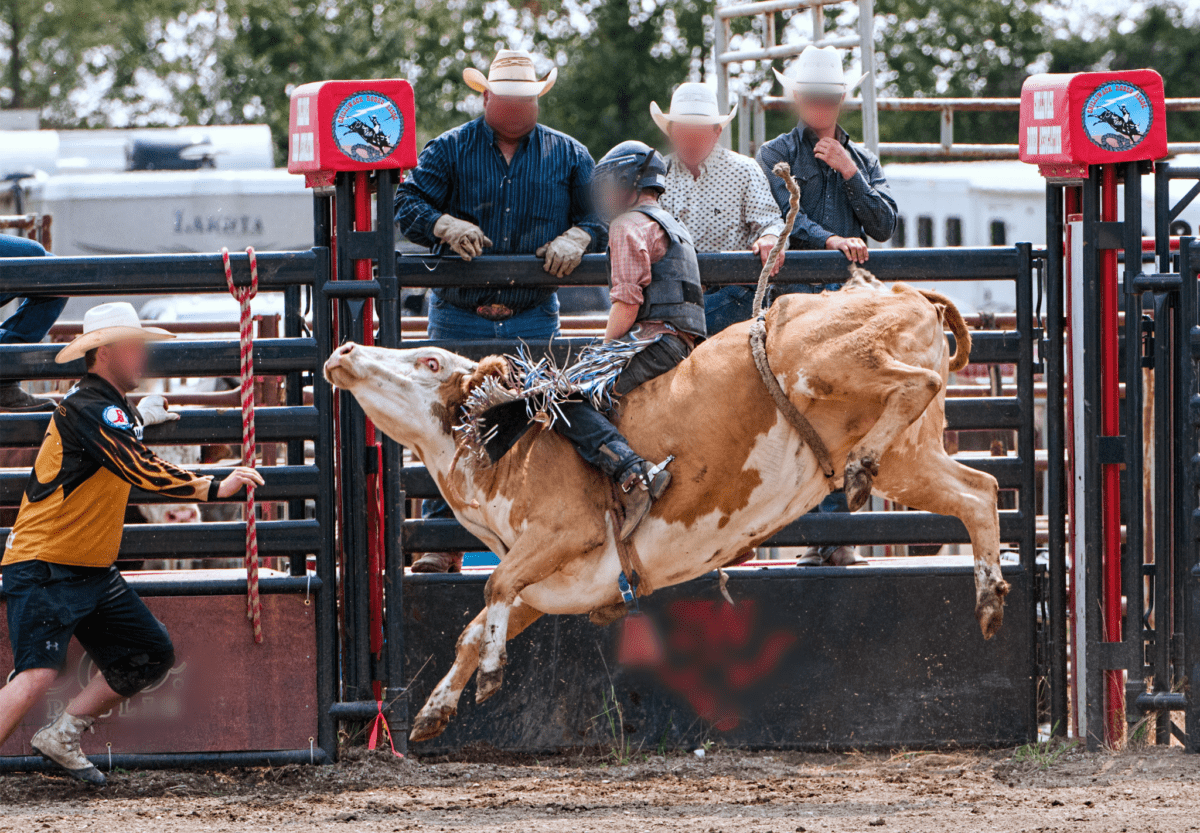Article originally published in The Daily Hive.
On Thursday, the Government of British Columbia announced new funding for fairs, festivals, and events; but the inclusion of one controversial and inhumane type of event is raising eyebrows among animal advocates.
According to a press release from the Ministry of Tourism, Arts, Culture and Sport, the Province will provide $30 million to support B.C.-based events, including sporting events, arts and culture events, community celebrations, agricultural fairs, and one baffling choice: rodeos.
Rodeos are the subject of growing criticism in British Columbia and around the world; and it’s easy to see why. Rodeo events cause unnecessary pain, fear, and stress to animals, both at the event and in countless practice sessions, all for a few moments of so-called entertainment.
To provoke the “performance” behaviours seen from animals in rodeos such as running and bucking, handlers and riders deliberately agitate these sensitive prey animals by pulling their ears, twisting their tails, and using uncomfortable tools like flank straps and spurs. Video footage released by the Vancouver Humane Society (VHS) reveals a number of recurring welfare concerns at some of B.C.’s most recent rodeo events in Chilliwack and Langley Township.
Meanwhile, evidence of poor welfare practices in rodeo continue to stack up. A new study was published just one month ago on the stress caused by calf roping (also called tie-down roping), a controversial event which takes place annually at rodeos in B.C. Concerns raised in the study include the risk of injury to young calves “such as damage to the windpipe from the lasso, bruising and broken ribs from being violently yanked off their feet and being forced to the ground, and choking from the tightened rope around their neck.” The study concluded that calves exhibited signs of distress across every phase of the calf roping event, from being chased, lassoed and caught, to when they were released.
Unlike human athletes, animals used in rodeo cannot decide whether or not to participate. If given the choice, there’s no doubt they would opt out of being roped, wrestled, and roughly handled.
The use of taxpayer dollars to fund these inhumane events is especially bewildering given the widespread dissent to the practice. Recent polling shows that only 26% of British Columbians are in favour of using animals in rodeo and a whopping 64% are opposed; the remainder are undecided. As a whole, our society is placing increasing value in treating animals with care and respect.
Amongst governing bodies apparently more in tune with community values, the growing awareness around animal sentience is inspiring a shift away from this type of animal exploitation for the sake of public entertainment. The City of Vancouver and the District of North Vancouver have already implemented a ban on rodeo events, as have the United Kingdom, the Netherlands, and a host of municipalities and regions worldwide. The Cloverdale Rodeo dropped four of its most concerning events after the death of a calf in 2007, and soon afterwards, the Luxton Rodeo near Victoria and the Abbotsford Rodeo were cancelled in 2015 and 2016, respectively.
It is difficult to see the Province’s announcement of rodeo funding as anything but a confident stride into the wrong side of history. That is why a new campaign from the VHS is calling on the Province to direct funding toward family-friendly community events, rather than rodeo events.
With a myriad of positive events that could use funds to reinvigorate the tourism sector and celebrate culture, community, and compassion, it would be incredibly disappointing for the Province to sink funding into a cruel and outdated practice that, as the majority of British Columbians agree, is better left in the past.

